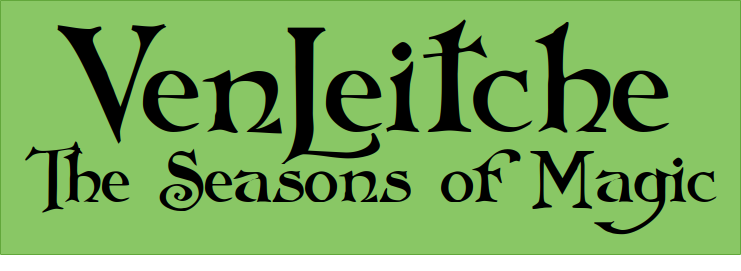Religious Practices 01
Religious Practices 01
Given the reality of Divinity in the game world, I've continued on this idea in worldbuilding, and developed out a number of ideas in parallel, such as terms for the four possible physical sexes, titles for the Theurges, and so on.
Practices
Observances, rituals, and prayers divide readily into those practiced by the individual and by the community, and those practiced routinely (daily, at the turn of the Seasons) and as needed (birth and funeral ceremonies). Let’s look at these in the order they’re likely to be encountered, from the most frequent to the least. Keep in mind that worship of the Divine follows something akin to the Law of Pragmatism: if it works, it’s true. If the Divine don’t approve of it, They’ll let people know one way or another, but They’ll give people credit for honest effort.
Form and Structure
Prayers may be silent or spoken aloud, according to the preference of the individual and the context of the occasion. Generally, in group rites, prayers are said out loud, so that the group may participate. Again depending on the context, the entire group may intone the prayer in unison, at such times typically using formalized wording agreed upon in advance, or the prayer may be said by an individual either leading the ritual or taking a moment of leadership for the specific event within the rite.
Formalized rites are for recurring situations, such as birth, death, handfasting, and the turning of the Seasons. As an example, when two or more individuals decide to formally pledge to each other, creating a bond recognized by the community as a family unit, a handfasting ceremony marks the occasion, and provides an opportunity to complete the legal paperwork in front of multiple witnesses in case there’s a question later about inheritance, commingling of property, or similar issue. The community’s spiritual leader (Priest, Priestess, Union, Transcendent, or any combination thereof) stands up before the assembled community, and formally blesses the union of those pledging to each other, reminding them that they have taken vows before the Divine, and only before the Divine and for great cause should those vows be set aside. The ritual normally includes a symbolic representation of the mystic and physical union of the handfasters, objects brought together and combined to form a greater whole. As an example, a triad handfasting consisting of a man, a woman, and a gwēthr may each pour a chalice of wine into a larger vessel, then all drink from the shared bowl. (A portion of the commingled wine is normally poured out for the Divine, customarily before anyone drinks from the bowl.)
Sacrifices to the Divine aren’t usually destructive. Grain or bread or fruit set aside for Them is put out in the wild if the Divine don’t come for it Themselves, leaving that portion to the wildlife since Nature is a manifestation of the Divine. Some communities practice a sort of destructive bardic tradition, where a poem or song is written for a specific ritual, performed at that ritual, and then the only copy of it burned on the altar. More often, sacrifices are in the form of sharing, where a place is set for the Divine at a feast, or the first bit of a newly opened bottle of wine is spilled in Their Name. Sometimes the Divine shows up at the feast, somehow just there at the end of the opening prayers without anyone remembering Them arriving. If the empty chair next to you allocated for the Divine is suddenly occupied, speak a word of welcoming as you would to any guest and pass Them the bread and honey.
Get Dynamic Balances: Venleitche
Dynamic Balances: Venleitche
An early-medieval Pagan gameworld with a mechanic driven by player agency
| Status | In development |
| Category | Physical game |
| Author | Wandering Beekeeper |
| Genre | Role Playing |
| Tags | agency, Fantasy, Medieval, neopagan, Tabletop |
| Languages | English |
More posts
- Development Status 2020-04-26Apr 26, 2020
- Playtest Today! (2020-04-25)Apr 25, 2020
- Development Status 2020-04-19Apr 19, 2020
- Development Status 2020-04-12Apr 12, 2020
- Venleitche Open Playtest with PregensApr 06, 2020
- Development Status 2020-04-05Apr 05, 2020
- Development Status 2020-03-29Mar 29, 2020
- Today's Playtest is Go!Mar 28, 2020
- Venleitche Cover v0.6Mar 24, 2020
- Development Status 2020-03-22Mar 22, 2020

Leave a comment
Log in with itch.io to leave a comment.